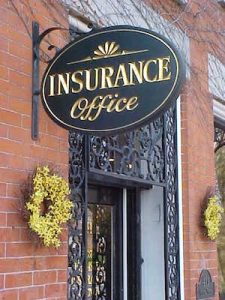A Lawyer Talks About Buying or Selling an Insurance Agency
When buying or selling an insurance agency, there are pitfalls to watch out for. We are a law firm that represents clients in buying or selling an insurance agency all over New York. We are going to describe how the closing process works and provide some tips on ensuring a smooth closing process and business ownership transition.
With the sale of an insurance agency, what is being sold are the existing insurance contracts and the reputation in the community. The existing insurance contracts are the most valuable asset of an insurance agency, because of the commission that the agency receives every time the customer’s contract is renewed, even if the contract is renewed automatically. The goodwill and reputation of the insurance agency in the community are also important, as it means getting more self-renewing contracts in the future.
The Closing
Closing for the sale of an insurance agency can be done remotely. Negotiations are done on the phone between the parties and their attorneys. Documents are edited accordingly by the attorneys as the negotiations advance, with the attorneys exchanging redlined versions of the documents in MS Word through email. Once the terms of the deal are agreed upon, the buyer and the seller of the insurance agency sign the documents and exchange scanned versions of the documents through email and hard copies of the documents through overnight FedEx or UPS.
The Escrow
In order to ensure that the buyer receives the customer accounts and the seller receives the money, the funds are held in an escrow by one of the attorneys while the transfer of insurance vendor accounts is taking place. The escrow attorney releases the funds to the seller once the transfer of accounts is complete and both the buyer and the seller instruct the attorney to release the escrow to the seller.
Seller-Financed Component
Many insurance agency sales involve a seller-financed component, where the seller takes a promissory note as part of the compensation of the business. For example, in the case of an $80,000 promissory note, the buyer agrees to pay the seller $1,500 per month for five years. Some promissory notes include a contingency on the non-compete agreement.
Non-Compete Agreement
Because what is being sold is the goodwill of the business, the buyer would not want the seller to take that goodwill back. This is why buyers insist that sellers sign a confidentiality agreement and a covenant not to compete. For example, it can be a non-compete agreement to not sell insurance within a twenty-mile radius of the insurance agency being sold for the next five years. The exact terms of the non-compete agreement for an insurance agency sale are negotiable between the buyer and the seller.
Assets that the Buyer is Looking to Receive
At the closing, the buyer is looking to receive the assets that are being bought:
- A complete list of customers, including current, active, canceled or inactive customers served
- All existing insurance contract information, including carriers and marketing representatives names and contact information
- Producer codes
- Agency codes
- User names and Passwords
- All electronic information concerning the current customers, including company name, policy number, and client contact information
- Complete backup of all client data from the seller’s data management system
Documents that Need to be Signed
There are documents that both parties are expected to sign at the closing. Signing the documents insures a smooth transaction of the business and that both the buyer and the seller are legally protected in the transaction. Here is a list of the documents signed in a typical sale of insurance business:
- Contract – sets up the price, what assets are bought, what the due diligence period is, and when the closing date is.
- Amendment to Contract – as the parties understand the deal better, more things come up and the contract needs to be amended.
- Bill of Sale – the main document that has the effect of transferring the business. Think of it as a deed to a house. The insurance vendors will need the Bill of Sale to transfer accounts to the new operator.
- Confidentiality Agreement and Covenant Not to Compete – as the buyer is buying the right to get commissions from clients who owe their loyalty to the agency, the buyer has to make sure that there is no way for the seller to just take those clients back.
- Assignments – Assignment of Trade Names, Assignment of Telephone Numbers, Assignment of Website and Email Addresses, Assignment of Contracts and Information
- Indemnity Agreement – since the buyer is taking some risk when buying assets he doesn’t know everything about, an indemnity agreement minimizes that risk somewhat by making giving the right to the buyer to sue the seller to reimburse them for any debts that occurred prior to the sale of the insurance agency.
- Minutes and Resolutions – minutes and resolution are corporate documents that are preferred, they provide legal authority to sell and buy the assets of the insurance agency. Those include Minutes of the Buyer’s Company, Resolution of the Buyer’s Company, Minutes of the Seller’s Company, Resolution of the Seller’s Company.
- Limited Powers of Attorney – Limited Powers of Attorney make it easier for the buyer to assume the business operations of the insurance agency they’re buying. These include Limited Power of Attorney for Payment and a Limited Power of Attorney for Assignment of Policies and Contracts.
- Letter from the seller’s company regarding the transfer of business – to confirm to any vendors, customers, etc. that the business has a new owner
- Closing Statement – the closing statement explains how much the seller is paying and how much of that money is going to the buyer, the broker, the closing attorney and other parties involved.
- Allocation Agreement – a statement whether this was an asset sale or a stock sale may be needed for tax purposes.
- Promissory Note – if a part of the deal is seller-financed, then the seller needs a promissory note from the buyer which sets forth the total amount financed, the number of payments and the amount of the monthly payments.
- Security Agreement – guarantees that the promissory note is secured by the assets of the insurance agency business
- Personal Guaranty – guarantees that the buyer is personally responsible for the promissory note even though the note is payable by the buyer’s corporation
- UCC-1 Financing Statement – has to be filed with New York State to insure that other people lending money to the buyer know of the seller’s promissory note interest
- Memorandum regarding fees – included if one of the attorneys is a closing agent
- Certification – the seller certifies that no changes took place since the contract was signed
- Assignment and Assumption of Lease – if the lease is one of the assets to be sold, the lease is assigned from seller to buyer, with the landlord’s consent
- Letter of Authorization – authorization to import consumer data to the buyer’s database
- Subordination Agreement – if the buyer is using a bank to finance the deal, the bank would typically wish to subordinate the seller-financed loan to their own loan
Once the closing is done and the buyer assumes the operation of the insurance agency, the seller typically sticks around for a few days to show the new operator the ropes and to make sure that the new owner correctly provides services to the customers. The new owner then assumes the operation of the insurance agency.
This article is meant for general information only, not as advice on a specific transaction. If you are looking to buy or sell an insurance agency in the state of New York, call the Law Offices of Albert Goodwin at (212) 233-1233.



